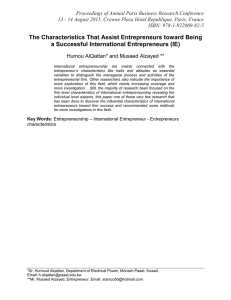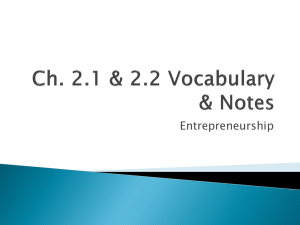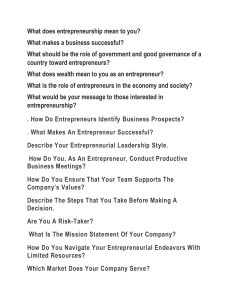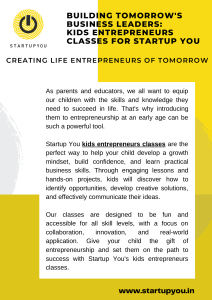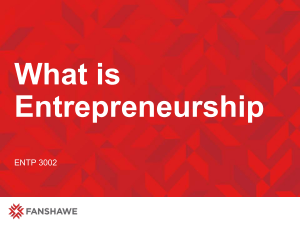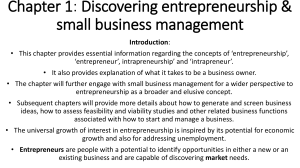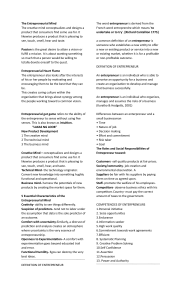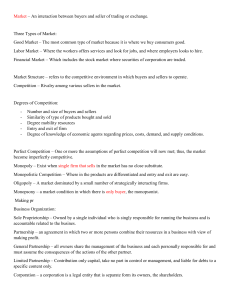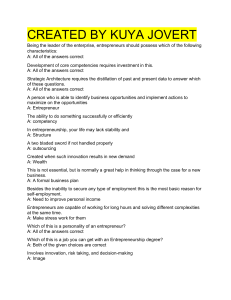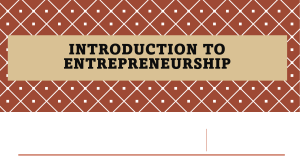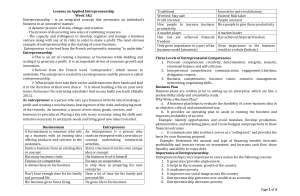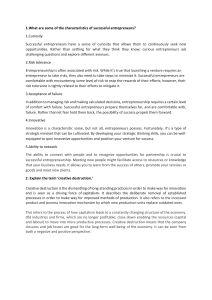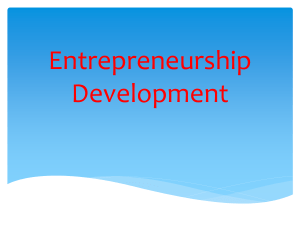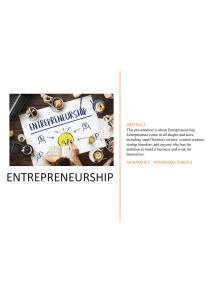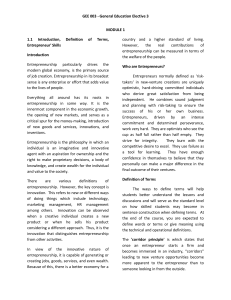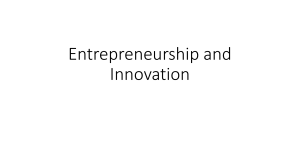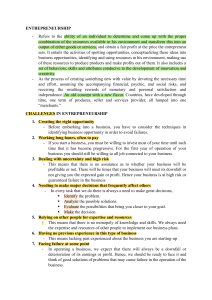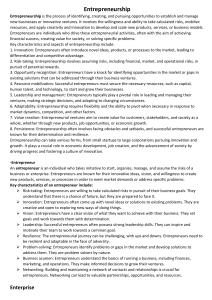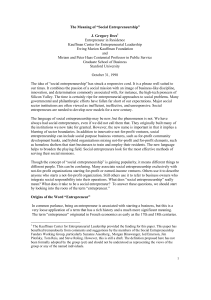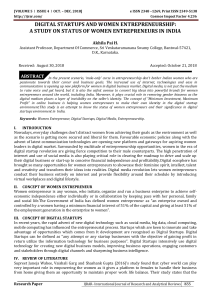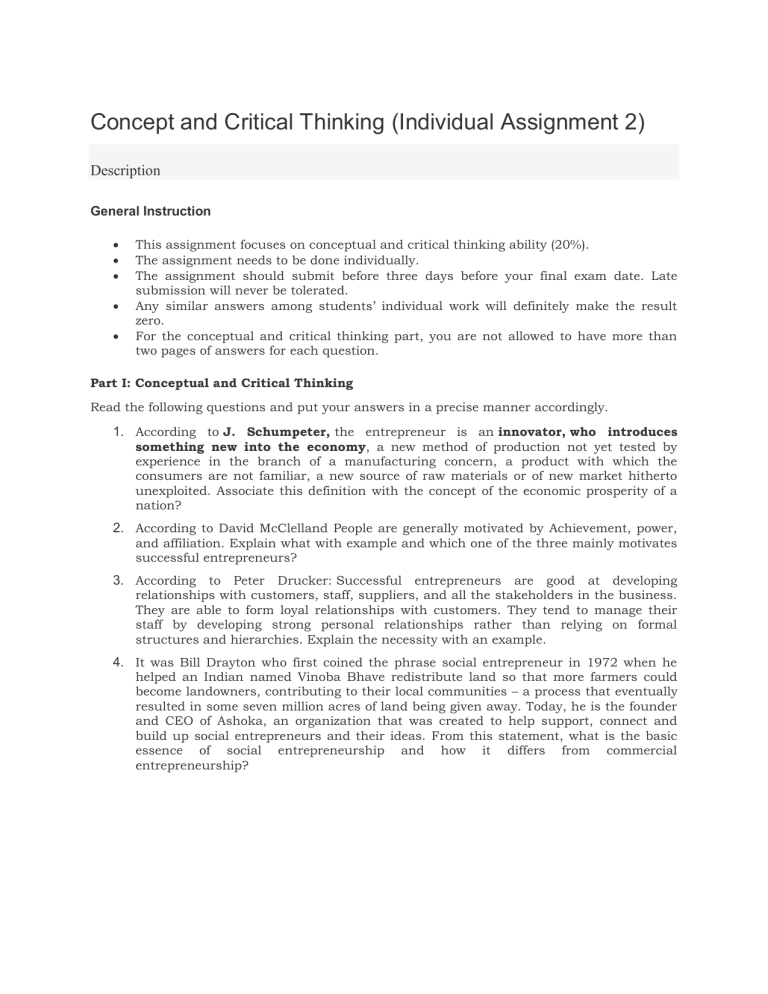
Concept and Critical Thinking (Individual Assignment 2) Description General Instruction This assignment focuses on conceptual and critical thinking ability (20%). The assignment needs to be done individually. The assignment should submit before three days before your final exam date. Late submission will never be tolerated. Any similar answers among students’ individual work will definitely make the result zero. For the conceptual and critical thinking part, you are not allowed to have more than two pages of answers for each question. Part I: Conceptual and Critical Thinking Read the following questions and put your answers in a precise manner accordingly. 1. According to J. Schumpeter, the entrepreneur is an innovator, who introduces something new into the economy, a new method of production not yet tested by experience in the branch of a manufacturing concern, a product with which the consumers are not familiar, a new source of raw materials or of new market hitherto unexploited. Associate this definition with the concept of the economic prosperity of a nation? 2. According to David McClelland People are generally motivated by Achievement, power, and affiliation. Explain what with example and which one of the three mainly motivates successful entrepreneurs? 3. According to Peter Drucker: Successful entrepreneurs are good at developing relationships with customers, staff, suppliers, and all the stakeholders in the business. They are able to form loyal relationships with customers. They tend to manage their staff by developing strong personal relationships rather than relying on formal structures and hierarchies. Explain the necessity with an example. 4. It was Bill Drayton who first coined the phrase social entrepreneur in 1972 when he helped an Indian named Vinoba Bhave redistribute land so that more farmers could become landowners, contributing to their local communities – a process that eventually resulted in some seven million acres of land being given away. Today, he is the founder and CEO of Ashoka, an organization that was created to help support, connect and build up social entrepreneurs and their ideas. From this statement, what is the basic essence of social entrepreneurship and how it differs from commercial entrepreneurship?
